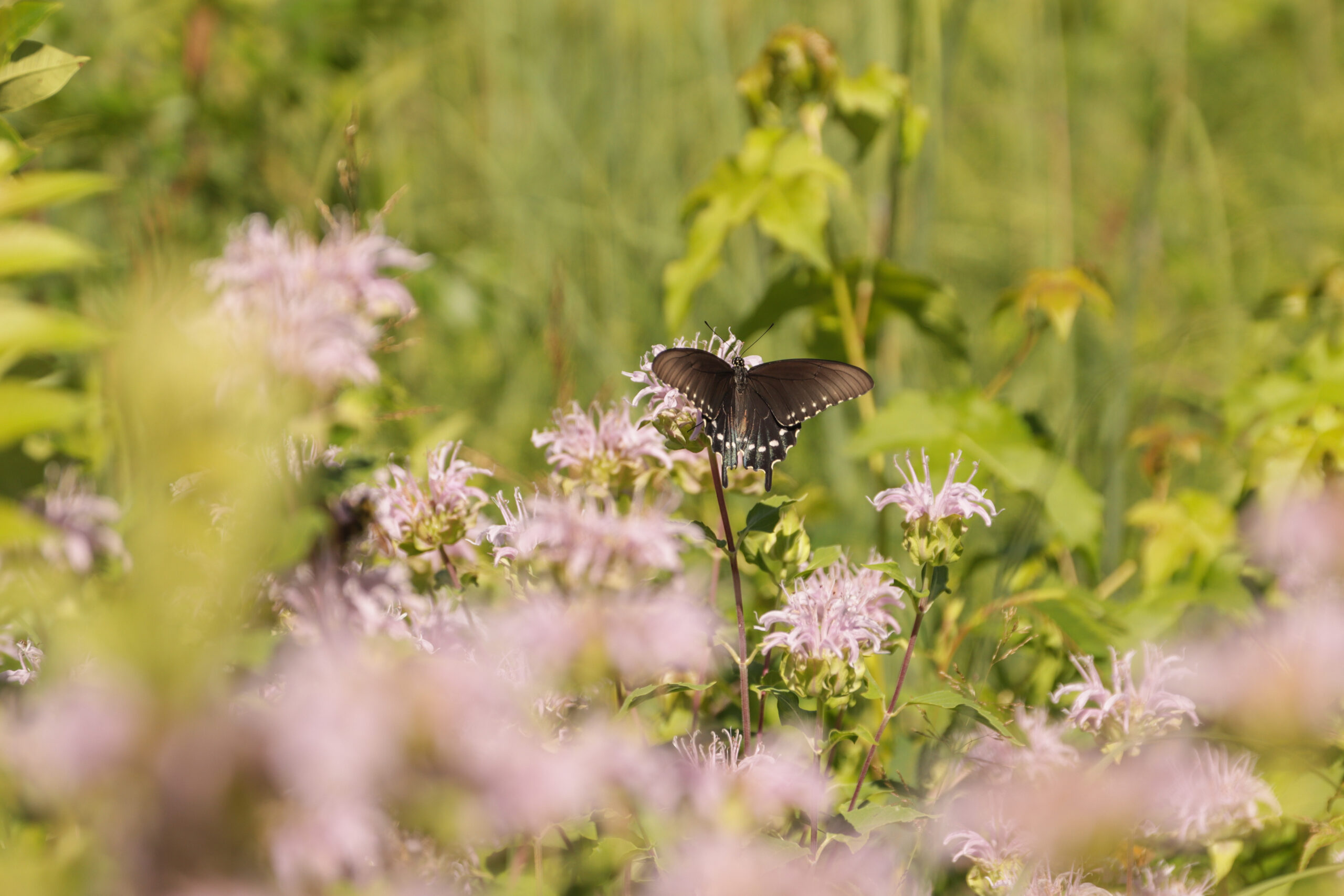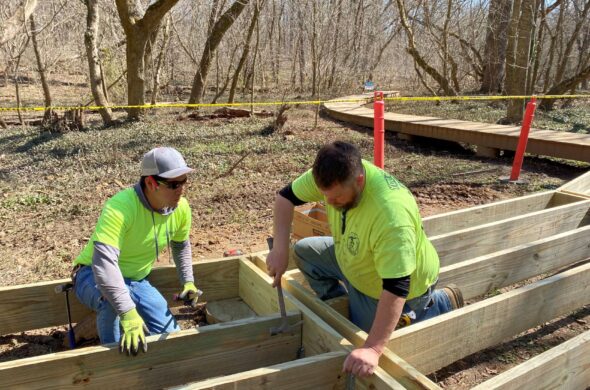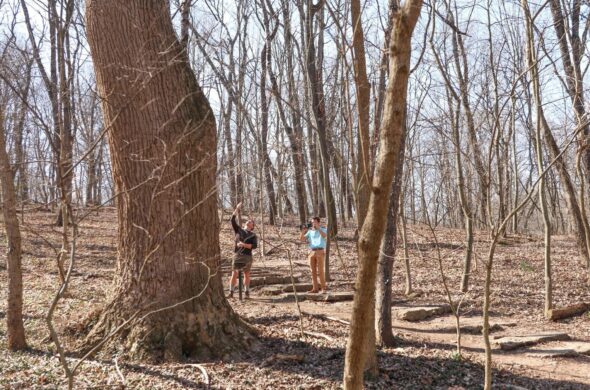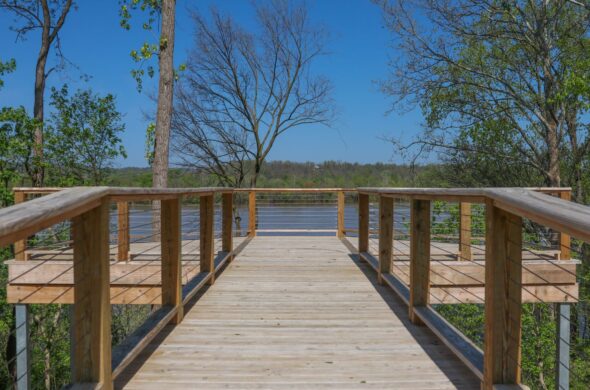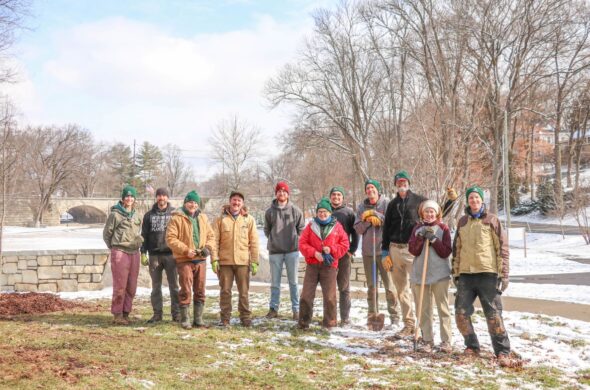Most of us have seen the bright yellow carpet of wildflowers that emerges in Cherokee Park in the spring. The color is striking, and you’ve probably taken a picture of it and wondered what the flower is.

We hate to burst your bubble, but when you see these flowers you are seeing an invasive monoculture that blooms at the expense of a diverse variety of native wildflowers like Virginia bluebells and Dutchman’s breeches. Fig buttercup, also known as lesser celandine, creates a dense mat of leaves starting in late winter, even before we see the yellow flower. Native flowers don’t stand a chance against fig buttercup’s abundant tubers and compact vegetation.

So, what do we do about it? Fig buttercup is established along Cherokee Park’s waterways, and our Team for Healthy Parks can’t compete with flood events that continue to spread the tubers. Therefore, in late winter we focus our efforts on areas that are still vulnerable, treating fig buttercup while surrounding vegetation is still overwintering. We try to mitigate fig buttercup in Cherokee, Seneca, Iroquois and other parks starting in February.
What can you do to help? Stay on the trails! Fig buttercup is easily spread by anyone who walks through it, and we don’t want it spreading to other areas of the park, or to your landscaping at home.
Find something similar: News Projects Cherokee Park

